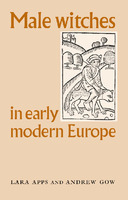Male witches in early modern Europe
Abstract
Gender at stake critiques historians' assumptions about witch-hunting as well as their explanations for this complex and perplexing phenomenon. The authors insist on the centrality of gender, tradition and ideas about witches in the construction of the witch as a dangerous figure. They challenge the marginalisation of male witches by feminist and other historians. The book shows that large numbers of men were accused of witchcraft in their own right, in some regions, more men were accused than women. The authors analyse ideas about witches and witch prosecution as gendered artefacts of patriarchal societies under which both women and men suffered. They challenge recent arguments and current orthodoxies by applying crucial insights from feminist scholarship on gender to a selection of statistical arguments, social-historical explanations, traditional feminist history and primary sources, including trial records and demonological literature. The authors assessment of current orthodoxies concerning the causes and origins of witch-hunting will be of particular interest to scholars and students in undergraduate and graduate courses in early modern history, religion, culture, gender studies and methodology.
Keywords
literature; gender; witchcraft; Demonology; Early modern Europe; Early modern period; Torture; Witch-huntDOI
10.9760/mupoa/9780719057090ISBN
9780719057090OCN
57555444; 963578974Publisher
Manchester University PressPublisher website
https://manchesteruniversitypress.co.uk/Publication date and place
2003Classification
European history


 Download
Download